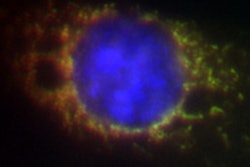The American College of Radiology (ACR) has released an updated version of its appropriateness criteria for the use of radiation therapy following surgical resection of head and neck squamous cell carcinoma. The guidelines were published in the July issue of Oral Oncology.
Adjuvant radiotherapy has been shown in clinical trials to improve postoperative locoregional control, compared with preoperative radiotherapy for head and neck cancers. Postoperative radiotherapy is generally indicated in patients with higher-risk features for locoregional recurrence after surgery, such as stage T3/T4 tumors, positive surgical margins, the presence of perineural invasion and/or lymphovascular invasion, and bone involvement (Oral Oncology, July 2011, Vol. 47:7, pp. 554-559).
Based on clinical trial outcomes, the ACR guidelines recommend that when a patient will only receive radiation therapy following surgical resection, the treatment should be initiated as soon as possible and completed within an 11-week period from the time of surgery.
The impact of the timing of radiation therapy on outcomes when it is delivered with concurrent chemotherapy is unclear, according to co-author Dr. Jonathan Beilter, professor of oncology and otolaryngology at Emory University School of Medicine, and other members of the expert panel of the ACR's oncologists, radiation oncologists, and surgeons. However, postoperative chemoradiotherapy is more effective than postoperative radiotherapy alone for high-risk patients.
While postoperative radiotherapy delivered concurrently with cisplatin (100mg/m2) every 21 days is the current standard treatment platform, radiation treatment volumes are not standardized and should be based on the risk of recurrence, the panel recommended.



















